
Contents
- 1 “Good Vibrations Seminar S3E9”: Siddarth Dhanpal (Tata Institute of Fundamental Research, Mumbai, India)
- 2 “Good Vibrations Seminar S3E8”: Jordan van Beeck (KU Leuven, Belgium)
- 3 “Good Vibrations Seminar S3E5”: Björn Muller (Max-Planck-Institue for Solar System Research, Germany)
- 4 “Good Vibrations Seminar S3E7”: Nuno Alexandre Martins Moedas (Instituto de Astrofísica e Ciência do Espaço (IA), Portugal)
- 5 “Good Vibrations Seminar S3E6”: Emma Willett (University of Birmingham, UK)
- 6 “Good Vibrations Seminar S3E4”: Yaguang Li (University of Sydney, Australia)
- 7 “Good Vibrations Seminar S3E3”: Raffaele Reda (University of Rome Tor Vergata and INAF-IAPS, Italy)
- 8 “Good Vibrations Seminar S3E2”: Aarya Patil (University of Toronto, Canada)
- 9 “Good Vibrations Seminar S3E1”: Jeroen Audenaert (KU Leuven, Belgium)
- 10 “Good Vibrations Seminar S2E13”: Alejandro Ramón-Ballesta (Instituto de Astrofisica de Andalucia, IAA-CSIC, Spain)
- 11 “Good Vibrations Seminar S2E12”: Dinil Bose Palakkatharappil (Observatoire de la Côte d’Azur, France)
- 12 “Good Vibrations Seminar S2E11”: Luisa Fernanda Rodriguez Diaz (SAC, Aarhus University, Denmark)
- 13 “Good Vibrations Seminar S2E10”: Arthur Le Saux (University of Exeter, UK)
- 14 “Good Vibrations Seminar S2E9”: Pierre Houdayer (LESIA, Observatoire de Paris, France)
- 15 “Good Vibrations Seminar S2E8”: Amadeusz Miszuda (University of Wrocław, Poland)
- 16 “Good Vibrations Seminar S2E7”: Gábor Kovács (ELTE and Konkoly Observatory, Hungary)
- 17 “Good Vibrations Seminar S2E6″: Joel Ong (Yale University, USA)
- 18 Good Vibrations Seminars S2E5: Sylvain Breton (CEA de Saclay/Université de Paris, France)
- 19 “Good Vibrations Seminar S2E4″: Camilla Clement Borre (SAC, Aarhus University, Denmark)
- 20 Good Vibrations Seminars S2E3: Siemen Burssens (KU Leuven, Belgium)
- 21 “Good Vibrations Seminar S2E2″: Guillaume Dréau (LESIA, Paris Observatory, France)
- 22 Good Vibrations Seminar S2E1: Emily Hatt (University of Birmingham, UK)
- 23 Good Vibrations Seminar #12: Joey Mombarg (KU Leuven, Belgium)
- 24 Good Vibrations Seminar #11: Thomas Steindl (University of Innsbruck, Institute for Astro- and Particle Physics, Austria)
- 25 Good Vibrations Seminar #10: Felix Ahlborn (MPA, Garching, Germany)
- 26 Good Vibrations Seminar #9: Diego Godoy-Rivera (The Ohio State University, USA)
- 27 Good Vibrations Seminar #8: Anthony Noll (IRAP, Toulouse, France)
- 28 Good Vibrations Seminars #7: Yoshiki Hatta (SOKENDAI/NAOJ, Japan)
- 29 Good Vibrations Seminar #6: Amalie Stokholm (SAC, Aarhus University, Denmark)
- 30 Good Vibrations Seminar #5: Martin Farnir (STAR institute, Liège University, Belgium)
- 31 Good Vibrations Seminar #4: Mariel Lares (IAA-CSIC, Granada, Spain)
- 32 Good Vibrations Seminar #3: Ashley Chontos (IfA, University of Hawai’i, USA)
- 33 Good Vibrations Seminar #2: Filipe Pereira (Univeristy of Porto)
- 34 Good Vibrations Seminar#1: Jordan Philidet (LESIA)
- 35 Kick-off meeting
“Good Vibrations Seminar S3E9”: Siddarth Dhanpal (Tata Institute of Fundamental Research, Mumbai, India)
Ensemble asteroseismology with deep learning. All stars oscillate: studying these pulsations helps understand the structure and rotation profiles of the
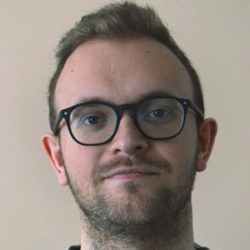
“Good Vibrations Seminar S3E8”: Jordan van Beeck (KU Leuven, Belgium)
Nonlinear resonant gravito-inertial mode coupling and asteroseismology of Kepler slowly pulsating B stars. Oscillations in slowly Pulsating B (SPB) stars
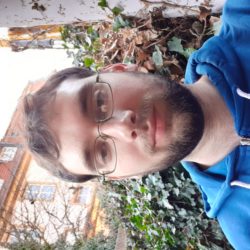
“Good Vibrations Seminar S3E5”: Björn Muller (Max-Planck-Institue for Solar System Research, Germany)
Imaging subsurface solar flows by iterative helioseismic holography. The main input data in helioseismology consists of extremely noisy, five-dimensional (2^2
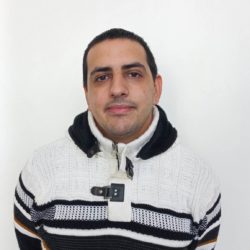
“Good Vibrations Seminar S3E7”: Nuno Alexandre Martins Moedas (Instituto de Astrofísica e Ciência do Espaço (IA), Portugal)
Investigating the effect of turbulent mixing in F-type stars. In stellar evolution one of the fundamental ingredients is the chemical
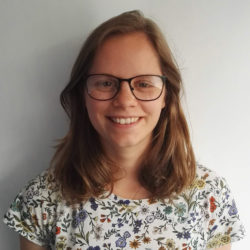
“Good Vibrations Seminar S3E6”: Emma Willett (University of Birmingham, UK)
Milky Way helium enrichment constrained by red clump stars. The helium mass fraction, Y, is an important constraint in stellar

“Good Vibrations Seminar S3E4”: Yaguang Li (University of Sydney, Australia)
Developing the tools for probing solar-like oscillators. I focus on developing the fundamental tools to better characterise stellar properties, particularly
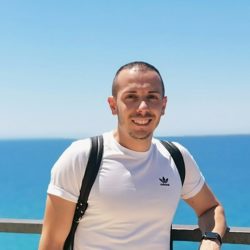
“Good Vibrations Seminar S3E3”: Raffaele Reda (University of Rome Tor Vergata and INAF-IAPS, Italy)
A synergic strategy to characterize the habitability conditions of exoplanets hosted by Solar-type stars. We present a new synergic strategy
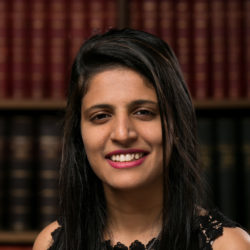
“Good Vibrations Seminar S3E2”: Aarya Patil (University of Toronto, Canada)
Improving Power Spectral Estimation using Multitapering: Precise asteroseismic modelling of stars, exoplanets, and beyond. Asteroseismic time-series data have imprints of stellar
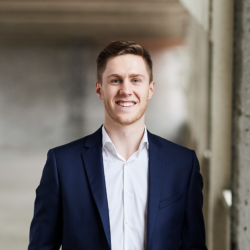
“Good Vibrations Seminar S3E1”: Jeroen Audenaert (KU Leuven, Belgium)
Discovering sets of pulsators with machine learning and finding automated ways to probe their physics. The Kepler and TESS space
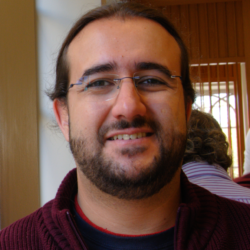
“Good Vibrations Seminar S2E13”: Alejandro Ramón-Ballesta (Instituto de Astrofisica de Andalucia, IAA-CSIC, Spain)
Time-frequency analysis of δ Scuti light curves using the wavelet transform. δ Scuti stars are intermediate-mass stars (i.e. between 1.5
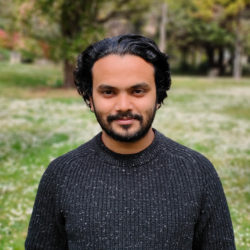
“Good Vibrations Seminar S2E12”: Dinil Bose Palakkatharappil (Observatoire de la Côte d’Azur, France)
Age constraints for the open cluster NGC 2477 using asteroseismology from TESS FFI Precise ages of stars are important for
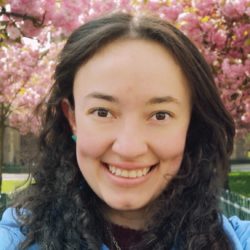
“Good Vibrations Seminar S2E11”: Luisa Fernanda Rodriguez Diaz (SAC, Aarhus University, Denmark)
An improved determination of convective granulation noise properties using 3D stellar atmosphere models Luisa Fernanda Rodriguez Diaz (SAC, Aarhus Universtity)
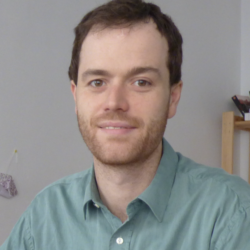
“Good Vibrations Seminar S2E10”: Arthur Le Saux (University of Exeter, UK)
Two-dimensional simulations of solar-like models with artificially enhanced luminosity: Impact on internal gravity waves Arthur Le Saux (University of Exeter, UK)
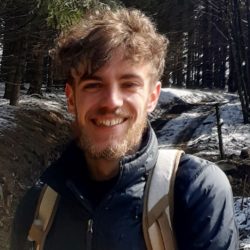
“Good Vibrations Seminar S2E9”: Pierre Houdayer (LESIA, Observatoire de Paris, France)
Seismic determination of the helium abundance in low mass stars, insights from modelling the ionisation region Pierre Houdayer (LESIA, Observatoire
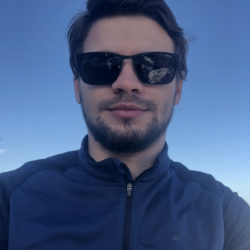
“Good Vibrations Seminar S2E8”: Amadeusz Miszuda (University of Wrocław, Poland)
Evolutionary and seismic modeling of the delta Sct pulsators in eclipsing binary systems Amadeusz Miszuda (University of Wrocław, Poland) The
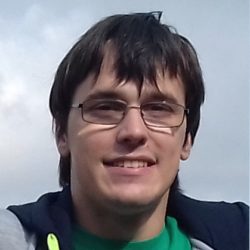
“Good Vibrations Seminar S2E7”: Gábor Kovács (ELTE and Konkoly Observatory, Hungary)
Numerical Modelling of Stellar Pulsations in 2D and 3D Gábor Kovács (ELTE and Konkoly Observatory, Hungary) Since the first electronic

“Good Vibrations Seminar S2E6″: Joel Ong (Yale University, USA)
Mixed Modes in Theory and Practice Joel Ong (Yale University) Studies of the Sun’s interior through the analysis and interpretation
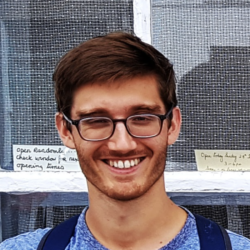
Good Vibrations Seminars S2E5: Sylvain Breton (CEA de Saclay/Université de Paris, France)
Characterising rotation from the core to the surface in solar-like main-sequence stars Sylvain Breton (CEA de Saclay/Université de Paris) Mechanisms governing angular
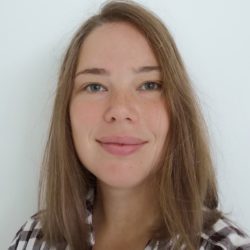
“Good Vibrations Seminar S2E4″: Camilla Clement Borre (SAC, Aarhus University, Denmark)
Dating the Gaia-Enceladus-Sausage Merger using Asteroseismology Camilla Clement Borre (SAC, Aarhus University) During the Milky Way’s lifetime, it has merged
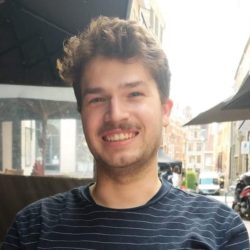
Good Vibrations Seminars S2E3: Siemen Burssens (KU Leuven, Belgium)
Exploitation of a TESS OB star asteroseismic sample: instability strips and asteroseismic modelling of HD192575 Siemen Burssens (KU Leuven) The

“Good Vibrations Seminar S2E2″: Guillaume Dréau (LESIA, Paris Observatory, France)
Constraining the internal structure of stars on the asymptotic giant branch Guillaume Dréau (LESIA, Paris Observatory) The success of the
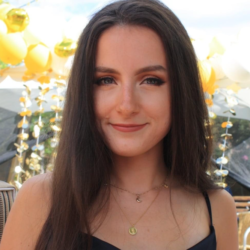
Good Vibrations Seminar S2E1: Emily Hatt (University of Birmingham, UK)
Asteroseismology with TESS; Bridging the Gap Between The Red Giant Branch and the Main Sequence Emily Hatt (University of Birmingham)
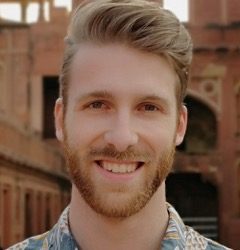
Good Vibrations Seminar #12: Joey Mombarg (KU Leuven, Belgium)
Asteroseismic modelling of gravito-inertial modes in γ Doradus pulsators Joey Mombarg (Institute of Astronomy, KU Leuven) The data from the

Good Vibrations Seminar #11: Thomas Steindl (University of Innsbruck, Institute for Astro- and Particle Physics, Austria)
Tidally perturbed pulsations in the pre-main sequence delta Scuti binary RS Cha Thomas Steindl (University of Innsbruck, Institute for Astro-
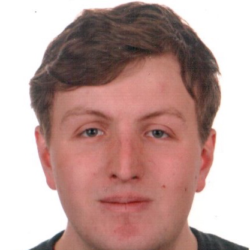
Good Vibrations Seminar #10: Felix Ahlborn (MPA, Garching, Germany)
Turbulent convection theories for stellar evolution models Felix Ahlborn (Max Planck Institute for Astrophysics, Garching) Convective overshoot mixing has been
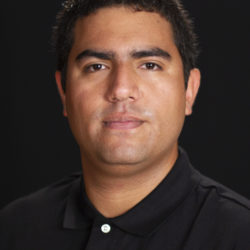
Good Vibrations Seminar #9: Diego Godoy-Rivera (The Ohio State University, USA)
Stellar Rotation Evolution in the Gaia Era: Revised Cluster Sequences and Prospects for the Post Main-Sequence Diego Godoy-Rivera (The Ohio
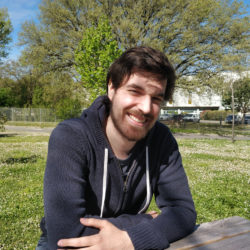
Good Vibrations Seminar #8: Anthony Noll (IRAP, Toulouse, France)
Probing core overshooting using subgiant asteroseismology Anthony Noll (Université Paul Sabatier, IRAP) Convective cores are the fuel reservoir of stars
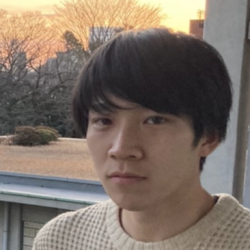
Good Vibrations Seminars #7: Yoshiki Hatta (SOKENDAI/NAOJ, Japan)
Asteroseismology of a possible blue straggler star, KIC 11145123 Yoshiki Hatta (SOKENDAI/National Astronomical Observatory of Japan) KIC 11145123 is a
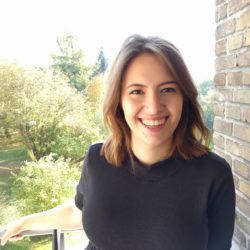
Good Vibrations Seminar #6: Amalie Stokholm (SAC, Aarhus University, Denmark)
Chronology of the Galactic disk with Asteroseismology Amalie Stokholm (SAC, Aarhus University) The Milky Way galaxy has been shaped by
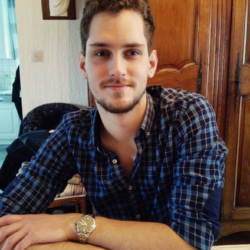
Good Vibrations Seminar #5: Martin Farnir (STAR institute, Liège University, Belgium)
Low mass stars seismology with WhoSGlAd and EGGMiMoSA Martin Farnir (STAR Institute, Liège University) Since most of the information we

Good Vibrations Seminar #4: Mariel Lares (IAA-CSIC, Granada, Spain)
Check out the video of the talk: (slides below) Check out Mariel’s slides: https://sites.lesia.obspm.fr/the-good-vibrations-seminars/files/2021/03/MLM_good_vibes.pdf Non-linear terms in Delta Scuti stars
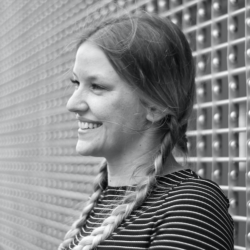
Good Vibrations Seminar #3: Ashley Chontos (IfA, University of Hawai’i, USA)
Ashley Chontos will tell us about her latest work : “Precise stellar and planet properties in the Kepler, K2 and TESS era”.
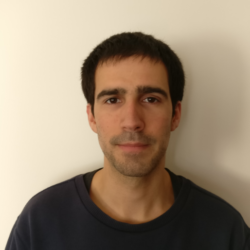
Good Vibrations Seminar #2: Filipe Pereira (Univeristy of Porto)
Detection and characterization of planets orbiting oscillating red-giant stars with NASA’s TESS mission Filipe Pereira (University of Porto) The number
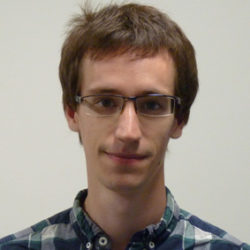
Good Vibrations Seminar#1: Jordan Philidet (LESIA)
Jordan Philidet (LESIA Paris Observatory) will tell us about his latest work on: “The Origin of p-mode Asymmetry and Asymmetry Reversal in Solar-like Oscillators”
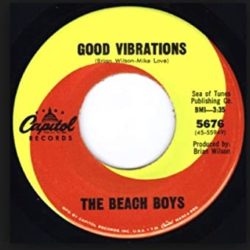
Kick-off meeting
Most of the international conferences being cancelled, we’re facing an issue: How can we make our PhD students known for
